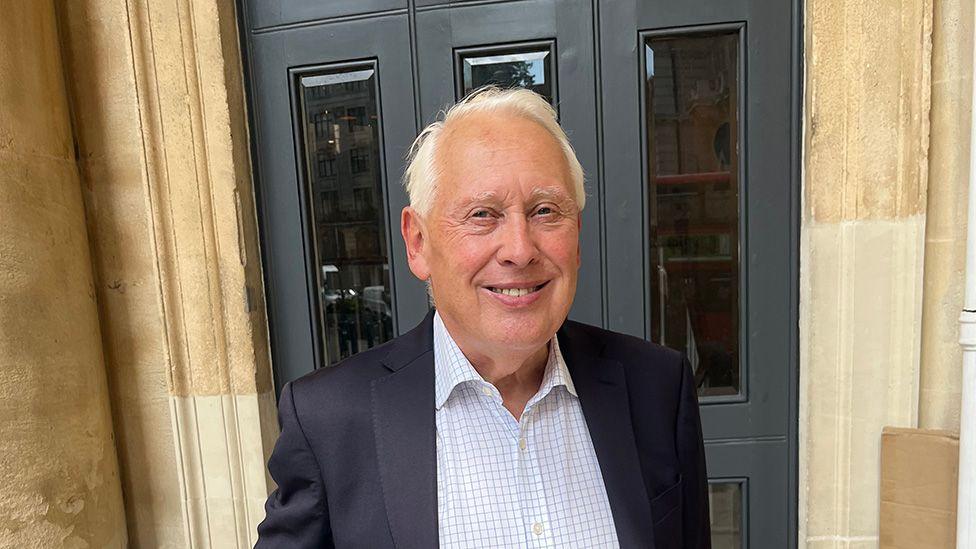Unclaimed estates list taken down after BBC probe

- Published
An official list of people who died without leaving a will has been taken offline, after a BBC investigation found evidence a crime gang was using it to commit fraud worth millions of pounds.
The government list - known as Bona Vacantia - gives the details of unclaimed estates in England or Wales. The BBC heard allegations that criminals were using the information to create fake wills and inherit money and property.
The page's removal has been welcomed by lawyers, but they say more needs to be done to protect the system from fraud.
In a statement, the Ministry of Justice said it was “working with the relevant agencies to support ongoing investigations into alleged fraudulent activity”.
Details of about 6,000 unclaimed estates are listed on Bona Vacantia (Latin for "Vacant Goods") and, until 7 July, anyone could view them on the gov.uk website.
However, the relevant page has been updated and now merely says: "We have temporarily removed the unclaimed estates list from our website. Further details will follow as soon as possible."
The Ministry of Justice has now told the BBC that the list has been removed “in keeping with current investigations” and it could not confirm “when the list will be available online again”.
A BBC News article published on Saturday 5 July recounted several cases in the south of England where a dead person's details had appeared on Bona Vacantia, and then, shortly after, someone had stepped forward claiming to be their sole heir.
These "heirs" produced wills where none had previously been thought to have existed. What's more, the claimants appear to be connected to each other through a network of company directorships, and all had names of Hungarian origin.
Family, friends and neighbours of the deceased told us how they had tried to alert authorities about their suspicions, but say that no action was ever taken.
As a result of our investigation, bank accounts for dozens of companies connected to the suspected fraudsters, have been suspended.
Shadow World: The Grave Robbers
It should be impossible to steal a home, but Sue Mitchell reveals it's all too easy.
Taking down Bona Vacantia is "absolutely right", according to Ann Stanyer, a leading specialist lawyer in the field, but she says this in itself will not be enough to combat fraud.
Probate (the legal process of administering a dead person's estate) has largely been carried out online since 2017, she says, but the current system demands too few checks on applicants, and "is clearly open to abuse".
Ms Stanyer's misgivings are shared with lawyer and former MP Sir Bob Neill: "If you are going to have an automated system there have to be checks in it, and at the moment, there aren't," he says.
Sir Bob began an inquiry into the probate system when he was chair of the House of Commons Justice Select Committee, although this was cut short by the 2019 general election. He says the taking down of Bona Vacantia is "a good start [to combat fraud], but there's a lot more they need to do".

Sir Bob Neill: Removing Bona Vacantia is "a good start" to combat fraud
The removal of Bona Vacantia will also have an impact on legitimate heir-hunting companies, who use the list as a starting point to research and then contact the genuine heirs to unclaimed estates.
"It's a bureaucratic kneejerk reaction, unnecessary," says Peter Turvey, who runs one such company, Anglia Research Services.
He says that the problem lies more not with the details revealed in Bona Vacantia, but with government failure to act when presented with clear examples of fraud.